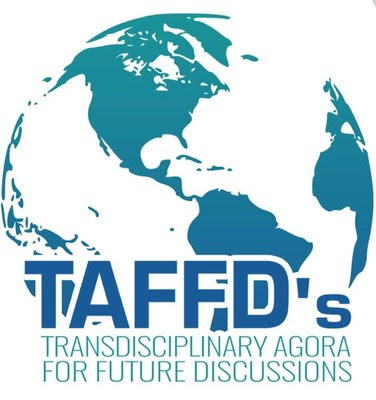Led by the Kremlin’s example, a global rise in disinformation and propaganda is having a disastrous effect on independent news around the world, a new report finds.
In its 2022 World Press Freedom Index released Tuesday, the Paris-based Reporters Without Borders (RSF) said Russia’s invasion of Ukraine has contributed vastly to the spread of fake news and propaganda.
The journalism watchdog group said its findings are worrying, as they show deep divisions among media within countries and between countries at the international level.
“In 2022, it’s really undeniable that media polarization and information chaos are really fueling social divisions in ways that are pretty new,” said Clayton Weimers, deputy director of RSF for the United States, told VOA. He said the prevalence of partisan news around the world has come at the expense of authentic journalism.
The group’s annual report ranks 180 countries based on the environment for independent journalism. This year, however, RSF said it used a new method that blends each country’s political, legal, economic, sociocultural and security conditions.
Now, the index classifies a record 28 countries as “having very bad media freedom.” That group includes China, which is exporting censorship beyond its borders while also amplifying the Kremlin’s propaganda on Russia’s devastating war against Ukraine.
Russia, China among worst
Since its invasion of Ukraine on February 24, Russia has sought total control over news coverage, passing a new law that carries 15-year prison terms for reporting “false news” on the military, and even forbids calling the conflict a “war.”
That has forced most remaining independent news outlets, including the renowned Novaya Gazeta newspaper, Ekho Moskvy radio and Dozhd TV, to shut down or move outside Russia to continue operating.
With independent voices absent, experts say, the Russian government has been able to flood state-run airwaves with propaganda that downplays the war and spreads false or misleading justifications for the Kremlin’s invasion.
Russia’s media repression stands at 155 out of 180 countries included in RSF’s index, where one is the most free and 180 the least.
“It’s safe to say at this point that the free press is a thing of the past in Russia,” Clayton said.
Throughout Russian President Vladimir Putin’s 22 years in power, Moscow has been targeting journalists and the independent press, he said.
“But since the invasion of Ukraine, it seems that Putin has really finished off the independent media once and for all in Russia,” Clayton said. “At this point, it is impossible to accurately report on the war in Ukraine.”
China ranked 175th in the new report. And now that it is firmly under Beijing’s influence, Hong Kong also registered a dramatic decline, ranking 148th out of 180 following a lengthy series of raids and arrests that shuttered pro-democracy news sites.
RSF’s country file on China says it is the world’s biggest jailer of journalists, with 120 in detention. The regime uses coercion, harassment, intimidation and surveillance to keep independent and foreign journalists from reporting on issues deemed “sensitive.”
“President Xi Jinping, in power since 2013, has restored a media culture worthy of the Maoist era, in which freely accessing information has become a crime and to provide information an even greater crime,” RSF’s country file states.
Rising authoritarianism
North Korea remains the worst country in the rankings at 180th. Elsewhere in the Asia-Pacific region, political turmoil, conflict and rising authoritarianism have wiped out years of progress.
The 2021 coup in Myanmar marked a 10-year setback for media rights, with journalists detained, media licenses revoked, and many news outlets returning to exile. Under the military junta, Myanmar, ranking 176th, is one of the world’s biggest jailers of journalists.
In Afghanistan, the Taliban insurgents pledged to uphold press freedom when they took power in August 2021. Instead, RSF said the “Taliban’s seizure of power has further worsened conditions for reporters and news organizations, who are the targets of all forms of intimidation and violence.” Afghanistan ranked 154th.
Across Africa, laws criminalizing online journalism have dealt a new blow to the right to information, RSF said, while the spread of rumors, propaganda, and disinformation has contributed to undermine access to quality information.
In Ethiopia, the war in the Tigray region, with its communication blackouts and restricted access, were the main factors that placed the country 114 on the index. Neighboring Eritrea and Djibouti are far worse, ranking near the bottom at 179 and 164, respectively.
African media continue to struggle economically, RSF said it its accompanying analysis.
“Despite a wave of liberalization in the 1990s, there are still, too often, cases of arbitrary censorship, especially on the internet, with occasional network shutdowns in some countries, arrests of journalists and violent attacks,” the group said.
Clayton said the rising authoritarianism feeds on itself.
“When we allow a culture of impunity to exist where authoritarians are allowed to go after journalists, harass them, arrest them, beat them in the streets and kill them, it has a knock-on effect,” he said. “It emboldens that same authoritarian to do it again next time, and it emboldens other authoritarians who are watching to do the same.”
US not perfect
After a period of seeing its media attacked as “fake news” by former President Donald Trump, the United States retained a relatively high ranking of 42 in RSF’s index. That is largely thanks to the return of regular White House and federal agency press briefings.
But RSF said problems persist, including “the disappearance of local newspapers, the systematic polarization of the media, and the erosion of journalism by digital platforms amid a climate of animosity and aggression toward journalists, among others.”
Barriers exist, for instance, when it comes to covering state governments and protests.
“We typically find that this is either due to just a blatant disregard for the laws governing open records or meetings, or they’re simply misinterpreting them. An individual is misinterpreting whether a journalist can be present at a particular event,” said Beth Francesco, senior director of the National Press Club Journalism Institute.
A few bright spots
Despite an overall trend of decline, Clayton said there are positives.
Some governments provide funding for news media without interfering in their operations, to ensure independence from political influence.
“If you look at the top of our list, some of the things that stand out are these are countries that have robust public funding for media,” he said, noting that “it’s always important to separate state funding for media and state-controlled media.”
Three Scandinavian countries — Norway, Denmark and Sweden — respectively come at the top of RSF’s index. Estonia, a former Soviet Union republic, ranked 4th.
RSF said the free exercise of journalism plays a major role in emerging democracies such as East Timor, ranked 17, Bhutan, ranked 33, and Mongolia, ranked 90.
East Timor was one country whose ranking skyrocketed, rising 54 places. But RSF cautioned that because of its change in methodology this year, “care should be taken when comparing the 2022 rankings and scores with those from 2021.”
Source: Voice of America



